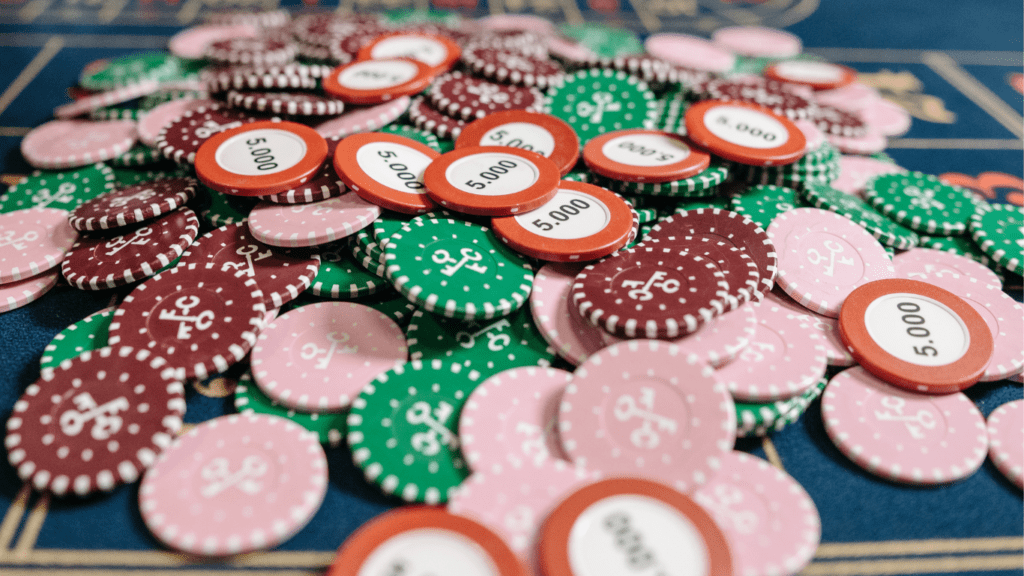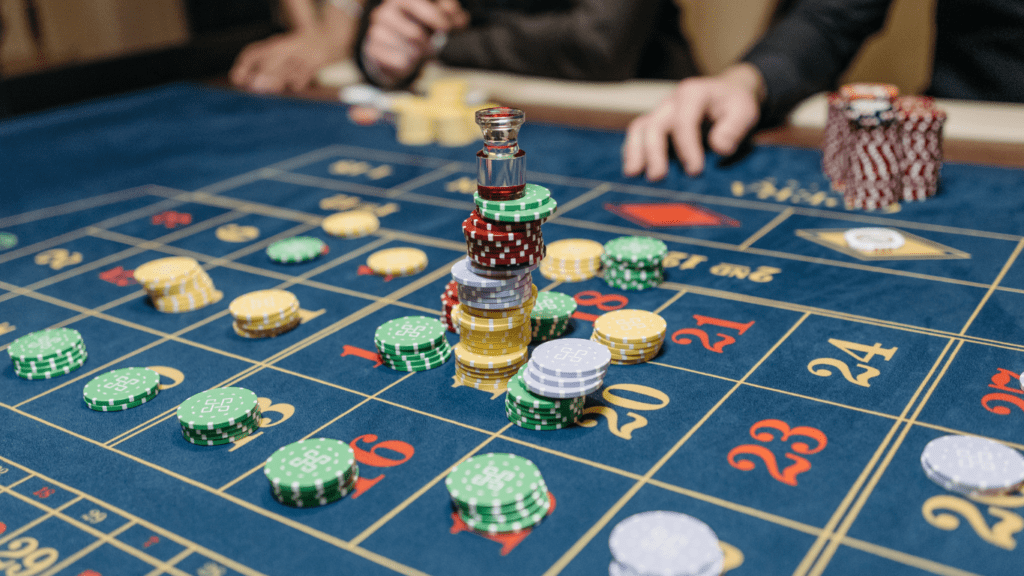First, Master Your Mindset
Before any money is placed on the table or a slot handle is pulled, your biggest advantage or liability is mental. Most losses don’t happen due to luck alone, but because the player wasn’t psychologically ready to play smart.
Why Most Gamblers Lose Before the First Spin
Too often, players rush into betting with unrealistic expectations and unfocused attention. This lack of mental preparation sets the stage for emotional decisions, inconsistent play, and impulsive chasing.
Ask yourself:
Are you in control of how much you’re willing to lose?
Do you know when you’ll walk away, win or lose?
Are you emotionally calm win or lose?
Your Internal Edge: Focus, Control, and Expectations
Winning players don’t rely on luck alone. They cultivate three critical internal traits:
Focus A steady mindset resists emotional volatility
Control Knowing when to stop, reset, and rethink
Expectation Management Betting for strategy, not for financial rescue or emotional gratification
Strong mental habits can prevent regretful decisions and help you enjoy the game longer and smarter.
How Emotions Sabotage Your Strategy
Gambling triggers powerful emotional responses especially when money is involved. The thrill of potential success can be addicting, while losses often prompt irrational behavior (like chasing losses or doubling down out of frustration).
Mastering your mindset means knowing the emotional traps and planning how to avoid them:
Pause between spins or bets to reset mentally
Take breaks to stay objective
Step away after big wins or losses to avoid impulsive rebound bets
Want to Go Deeper?
For a deep dive into mental strategies, check out the full guide: Unlocking Slot Success: Mental Strategies and Psychology for Winning Big
Strengthening your mindset won’t guarantee a win, but it will give you consistency, control, and a sharper edge than most of the crowd.
Tip 1: Detach Emotions from Outcomes
Understanding your emotional responses while betting can mean the difference between smart play and reckless decisions. It’s natural to feel a rush after a win or frustration after a loss but letting those emotions drive your next move can work against you.
Avoid Chasing the High
Jackpots feel incredible, and that dopamine rush is designed to be addictive. But chasing that feeling often leads to impulsive bets and poor judgment.
Recognize that the satisfaction of a win is momentary
Don’t view the next spin as a follow up to the last result
Winning streaks aren’t signals they’re coincidences
Reset Between Rounds
To stay mentally balanced, create short pauses between wins and losses. Resetting your mindset helps keep your decisions rooted in strategy, not emotion.
Ways to reset:
Take a short walk between sessions
Switch machines or games briefly
Check in with your loss/win limits and reset your expectations
Stay Level at the Machine
The machine doesn’t care how you feel. So keep your mindset neutral even when things swing wildly.
Breathe deeply between bets
Use a simple grounding method (touch something physical, take a sip of water)
Monitor your posture and body language they often reflect your emotional state
Remember: Emotional detachment doesn’t mean being cold it means staying focused, centered, and fully in control of your behavior, regardless of the game’s outcome.
Tip 2: Understand Randomness (and Accept It)
Slot machines are built on one thing: randomness. Each spin is triggered by a random number generator (RNG), which means outcomes are not influenced by time, prior wins, or how long you’ve been playing. You can’t warm up a machine. You can’t sense when it’s “due.” It’s math, not mood.
This is where the gambler’s fallacy creeps in. That feeling you get where you just know the next spin will hit because it hasn’t in a while? That’s the fallacy talking. Believing a win is overdue because the losses have stacked up is a mental trap. The machine doesn’t track your spins. It doesn’t care about your losing streak. Each pull is a reset.
Emotional intuition? Doesn’t work here. Your gut isn’t smarter than the code. The most disciplined players learn to separate gut feelings from reality. You can control how long you play, how much you bet, and when you walk away. That’s it. Everything else lives in the domain of chance.
The trick is to stay sharp without trying to outsmart the machine. You won’t beat randomness, but you can beat the urge to chase it.
Tip 3: Set Intentional Play Limits

One of the most overlooked tools in a gambler’s kit: boundaries. Not just bankroll caps, but time on task. Setting session time blocks and fixed loss limits isn’t about playing scared it’s about staying in control. A one hour block with a $50 cap keeps the session focused. It creates a finish line that doesn’t rely on “just one more spin.”
Stopping early isn’t quitting. It’s cashing out your clarity. If you’re down and the rhythm is off, walking away conserves energy, funds, and your emotional balance. Even after a win, cutting the session short while you’re ahead or simply satisfied builds discipline.
We need to retire the stigma around “quitting.” In slot play, as in life, knowing when to stop is often what separates the recreational plodder from the consistent long term winner. Be the player who can leave the table without regret. That’s not weakness it’s edge.
Tip 4: Confidence Without Overconfidence
Slot players talk big wins, but the solid ones talk control. Confidence is necessary you need to believe you’re capable of playing sharp, walking away, and managing your bankroll. But believing in your approach doesn’t mean ignoring the math. The odds are what they are. Smart players learn to respect them and still back themselves to show up right.
This is where mental discipline earns its keep. Anyone can hit spin. The difference is in consistent behavior. Showing up clear headed. Making the same smart decisions under pressure. That kind of consistency doesn’t get gifted; you train it. Ritual helps. A simple pre bet routine whether it’s a short breath, stretching your hands, or silently reviewing your stop loss can reset your focus. It tells your mind: we’re not here to chase, we’re here to play with intention.
For deeper strategies on mastering the inner game, dive into the full slot success mindset.
Tip 5: Reflect After Every Session
Most players hit “off” and walk away. That’s a mistake. Post bet analysis is where long term growth happens. It’s how you spot mistakes, bias, and emotional drift that you didn’t notice in the moment. On the surface, two sessions might look the same. But look closer maybe one had tilt after a near win, and the other was driven by pure boredom. That info matters.
A dead simple way to build this habit is with a short journal. Doesn’t need to be deep. Two minutes, max. After each session, ask:
How did I feel starting?
Did I chase anything emotionally?
What would I do the same or differently next time?
Tracking this over time builds a map of your mental game. Patterns show up. You’ll see which moods lead to losses, or what time of day you’re sharpest. That level of awareness changes how you play. Less autopilot, more control.
This isn’t just for high rollers. Smart players, at any level, know that the edge isn’t just in the machine it’s in their mindset.
Apply Strategy, Not Hope
Luck gets the spotlight, but real players know psychology makes the difference. Sharp bettors don’t just hit spin they prepare, track, reflect, and adjust. They use their mind as much as their money. That means recognizing tilt before it takes over. It means staying calm in the face of a loss, and grounded after a win.
Mental habits shape long term outcomes more than hot streaks ever will. The people cashing out consistently? They’re not chasing jackpots blindly. They’re showing up with a plan, applying discipline, and walking away when the plan says it’s time.
In slots or any game of chance, the smartest edge you’ve got is how well you manage yourself. Stay sharp, stay honest, and let the game come to you.


 Pearlee Conleyora
Founder
Pearlee Conleyora is the visionary founder of Jackpot Lucky Deal, a platform dedicated to bringing jackpot enthusiasts the latest news, effective strategies, and insights into the ever-evolving world of jackpots and gaming. With extensive experience in online gaming and a keen understanding of the growing role of cryptocurrency in jackpots, Pearlee created Jackpot Lucky Deal to serve as a trusted resource. Her commitment to responsible betting and innovative jackpot strategies shines through every aspect of the site, ensuring that users not only have the tools to play smarter but also stay updated on trends and technological advancements in the gaming world. Pearlee’s leadership and forward-thinking approach are the backbone of Jackpot Lucky Deal, where her goal is to create a comprehensive, user-friendly platform that empowers both novice and seasoned jackpot players.
Pearlee Conleyora
Founder
Pearlee Conleyora is the visionary founder of Jackpot Lucky Deal, a platform dedicated to bringing jackpot enthusiasts the latest news, effective strategies, and insights into the ever-evolving world of jackpots and gaming. With extensive experience in online gaming and a keen understanding of the growing role of cryptocurrency in jackpots, Pearlee created Jackpot Lucky Deal to serve as a trusted resource. Her commitment to responsible betting and innovative jackpot strategies shines through every aspect of the site, ensuring that users not only have the tools to play smarter but also stay updated on trends and technological advancements in the gaming world. Pearlee’s leadership and forward-thinking approach are the backbone of Jackpot Lucky Deal, where her goal is to create a comprehensive, user-friendly platform that empowers both novice and seasoned jackpot players.

